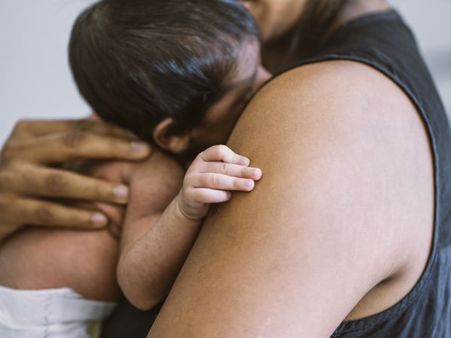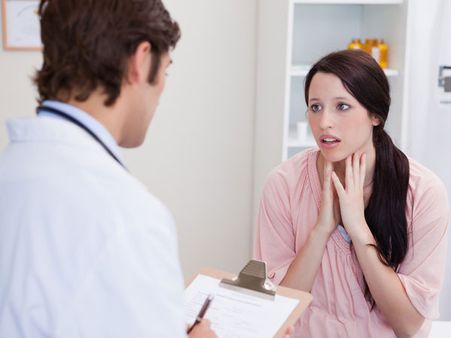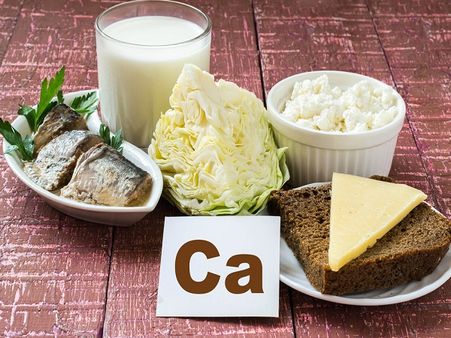Just In
- 7 hrs ago

- 8 hrs ago

- 11 hrs ago

- 11 hrs ago

Don't Miss
- Movies
 Arti Singh Wedding: Groom Dipak Chauhan’s First Look Out As He Reaches Venue With Baraat - VIRAL VIDEOS
Arti Singh Wedding: Groom Dipak Chauhan’s First Look Out As He Reaches Venue With Baraat - VIRAL VIDEOS - Sports
 T20 World Cup 2024: Waqar Younis Predicts Pakistan's 15-Man Squad; Drops This Express Pacer
T20 World Cup 2024: Waqar Younis Predicts Pakistan's 15-Man Squad; Drops This Express Pacer - Finance
 1:5 Stock Split Approved: Defence Stock To Be Cheaper Soon, Shares Zoom 507% In 1-Yr
1:5 Stock Split Approved: Defence Stock To Be Cheaper Soon, Shares Zoom 507% In 1-Yr - News
 King Charles Grants Royal Assent: UK's Rwanda Deportation Plan Now Law
King Charles Grants Royal Assent: UK's Rwanda Deportation Plan Now Law - Automobiles
 Royal Enfield Unveils Revolutionary Rentals & Tours Service: Check Out All Details Here
Royal Enfield Unveils Revolutionary Rentals & Tours Service: Check Out All Details Here - Technology
 Elon Musk’s X Is Launching a TV App Similar to YouTube for Watching Videos
Elon Musk’s X Is Launching a TV App Similar to YouTube for Watching Videos - Education
 AICTE introduces career portal for 3 million students, offering fully-sponsored trip to Silicon Valley
AICTE introduces career portal for 3 million students, offering fully-sponsored trip to Silicon Valley - Travel
 Escape to Kalimpong, Gangtok, and Darjeeling with IRCTC's Tour Package; Check Itinerary
Escape to Kalimpong, Gangtok, and Darjeeling with IRCTC's Tour Package; Check Itinerary
Lead Poisoning During Pregnancy: What You Should Know
Lead poisoning, as the name suggests, is the poisoning of the body due to high levels of lead. This condition further causes severe health-ailments, due to the toxicity of lead. As a result of it, usually the brain tends to get most affected. However, the other outcomes could be constipation, stomach ache, headache, grumpiness, memory-related issues, tingling sensations in hands and/or feet, infertility, behavioral issues, and so on. Depending on the severity of the case, the effects could even be more serious and dangerous, such as anaemia, coma, seizure or even death.

The causes of lead poisoning could be the swallowing or breathing in of lead through dusty environments, soil or tap water, makeup, certain medicines, construction or refining fields, etc.

What Are The Symptoms Of Lead Poisoning During Pregnancy?
Both children and adults are prone to lead poisoning. Also, pregnant ladies are known to be vulnerable to it. Therefore, if you are a pregnant woman, you must ensure the prevention of lead poisoning by taking extra care for the sake of your unborn child, since the impact could be really dangerous for your health as well as your baby's health.
For instance, pregnant women with lead poisoning run the risk of miscarriage, premature delivery, and birth-defects related to the baby's nervous system, brain and kidneys or behavioral and learning issues of the child in future.
During pregnancy, it is imperative to watch out for symptoms of lead poisoning. These usually include mood swings, headache, extreme lethargy or weakness, lack of appetite, stomach ache, muscular or joint pain, nausea, a metal taste inside the mouth, anxiety, and so on.

Effects Of Lead Poisoning On The Fetus/Baby
If a pregnant woman swallows or breathes in lead, it directly gets into her blood, and adversely affects the fetus. High quantity of lead in the blood results in issues related to the development of the brain as well as the nervous system of the baby, and may create further problems post-birth. They are likely to develop learning problems or there might be slow growth. Also, some other effects could be sudden abortion, low birth weight or reduction of circumference of the infant's head.

How Is It Treated?
It is very important to understand the source or reasons for the lead poisoning in pregnant mothers. Once it is determined, the specific risk-reduction methods could be worked out. Additionally, any sort of deficiencies in calcium or iron would need to be taken care of.
The formal treatment for lead poisoning refers to the chelation therapy, which includes administering chelating agents into the body in order to remove the toxic heavy metals such as lead or mercury.
The chelation therapy is a tried and tested method in the field of clinical toxicology. Owing to certain side effects, a lot of care has to be taken while a patient undergoes this treatment. It is the most preferred method of treatment for ailments caused by poisoning related to metals such as iron, lead, uranium, mercury, arsenic, plutonium and so on.
Although the chelation therapy is effective in treating lead poisoning, there may be certain side effects involved too. Those include harm to kidneys, dehydration, allergic reactions, low levels of calcium in the blood, brain-disorders causing problems related to memory, learning ability, self-control, etc.
How Can It Be Prevented?
Prevention is better than cure! This stands absolutely true in case of lead poisoning too. Pregnant ladies can take that extra care and prevent it completely. Let us explore how:

1. Speak to your doctor
Since your doctor may prescribe certain medications or supplements during pregnancy, it is imperative to discuss with him/her regarding any kind of lead content in those medicines. Also, you must immediately inform your doctor, if you find yourself craving for eating clay or dirt, since they may have lead in them.

2. Be conscious about the presence of lead inside your home
If your house has old paint, which is peeling off especially, you run the risk of inhaling lead dust coming out of it. Also, in case there is any sort of renovation or scraping, painting, etc. going on inside your house, then you must, at any cost stay away. The home repairs produce a dangerous level of lead.

3. Proper storage of food is important
Most of us have the habit of storing food in various containers. For a pregnant woman, it is important to take into consideration, the material of the storage container. E.g., ceramic pottery which may be lead-glazed, brass containers, lead-based crystal, or even utensils with cracks should be a strict no-no!

4. Eat a diet rich in calcium, vitamin C and iron
Apart from preventing lead poisoning, it is also important to follow a diet rich in calcium, vitamin C and iron. It helps protect the mother and the unborn child both. Incorporate more green leafy vegetables like spinach, cheese, milk and yogurt for calcium. Oranges, tomatoes, red and green peppers and broccoli for vitamin C. Spinach, cereals, beans, etc. for iron. Additionally, it is a good idea to be cautious while consuming candies, spices or any other food items which are capable of resulting in lead poisoning.

5. Stay away from certain jobs
Many professions such as construction, manufacturing, repairing, etc. are vulnerable to extreme exposure to lead. Avoid being involved in such jobs. In case any of your close ones is associated with such a job or hobby, always make it a point to have them change into clean clothes before coming into your vicinity. Also, their work-clothes and work-shoes should be kept separately, and work-clothes should be washed separately.
Lead poisoning can be dangerous for a pregnant woman and for her unborn child. It is always recommended to keep away from any factors, surroundings, materials, etc. that may promote any sort of lead poisoning. Be careful, and be conscious!
-
 healthExclusive: Expert Debunks 5 Common Misconceptions About Expectant Mothers That You Need To Steer Clear From
healthExclusive: Expert Debunks 5 Common Misconceptions About Expectant Mothers That You Need To Steer Clear From -
 healthSolar Eclipse 2024: Dos and Don'ts for Pregnant Women During Surya Grahan
healthSolar Eclipse 2024: Dos and Don'ts for Pregnant Women During Surya Grahan -
 healthLunar Eclipse 2024: Dos And Don'ts For Pregnant Woman During Chandra Grahan
healthLunar Eclipse 2024: Dos And Don'ts For Pregnant Woman During Chandra Grahan -
 fashionDeepika Padukone-Ranveer Singh Announce Pregnancy: 6 Maternity Outfit Ideas For The Modern Mom-to-Be
fashionDeepika Padukone-Ranveer Singh Announce Pregnancy: 6 Maternity Outfit Ideas For The Modern Mom-to-Be -
 healthLate Singer Sidhu Moose Wala's Mother Is Pregnant Through IVF, Know What It Is And How To Prepare For It
healthLate Singer Sidhu Moose Wala's Mother Is Pregnant Through IVF, Know What It Is And How To Prepare For It -
 insyncVirat Kohli And Anushka Sharma Name Their Baby Boy 'Akaay', Know What This Beautiful Name Means?
insyncVirat Kohli And Anushka Sharma Name Their Baby Boy 'Akaay', Know What This Beautiful Name Means? -
 pregnancy parentingMaternal Health Awareness Day 2024: 15 Foods That Boost Maternal Health
pregnancy parentingMaternal Health Awareness Day 2024: 15 Foods That Boost Maternal Health -
 pregnancy parentingFrom Contractions To Water Breaking: Knowing When It's Time For The Hospital During Pregnancy
pregnancy parentingFrom Contractions To Water Breaking: Knowing When It's Time For The Hospital During Pregnancy -
 pregnancy parentingBirth Control Pills Can Affect This Primary Function In Women: Find Out What
pregnancy parentingBirth Control Pills Can Affect This Primary Function In Women: Find Out What -
 pregnancy parentingTwo Wombs, Four Hearts: US Mom's Extraordinary Double Uterus Pregnancy
pregnancy parentingTwo Wombs, Four Hearts: US Mom's Extraordinary Double Uterus Pregnancy -
 healthExclusive: A Pregnant Mom Can Posses These Maternal, Fetal Health Risks If Exposed To Air Pollution
healthExclusive: A Pregnant Mom Can Posses These Maternal, Fetal Health Risks If Exposed To Air Pollution -
 pregnancy parentingDelhi Air Pollution: Pregnant Women Must Follow These 4 Things!
pregnancy parentingDelhi Air Pollution: Pregnant Women Must Follow These 4 Things!


 Click it and Unblock the Notifications
Click it and Unblock the Notifications



